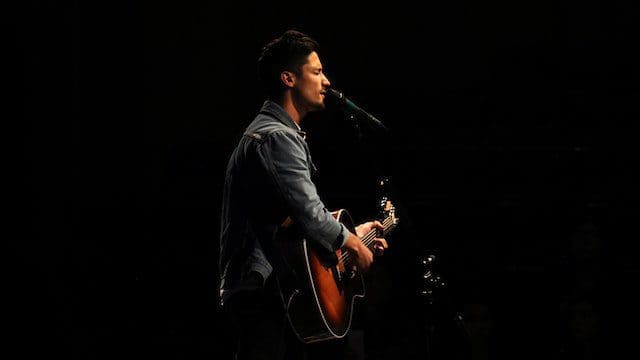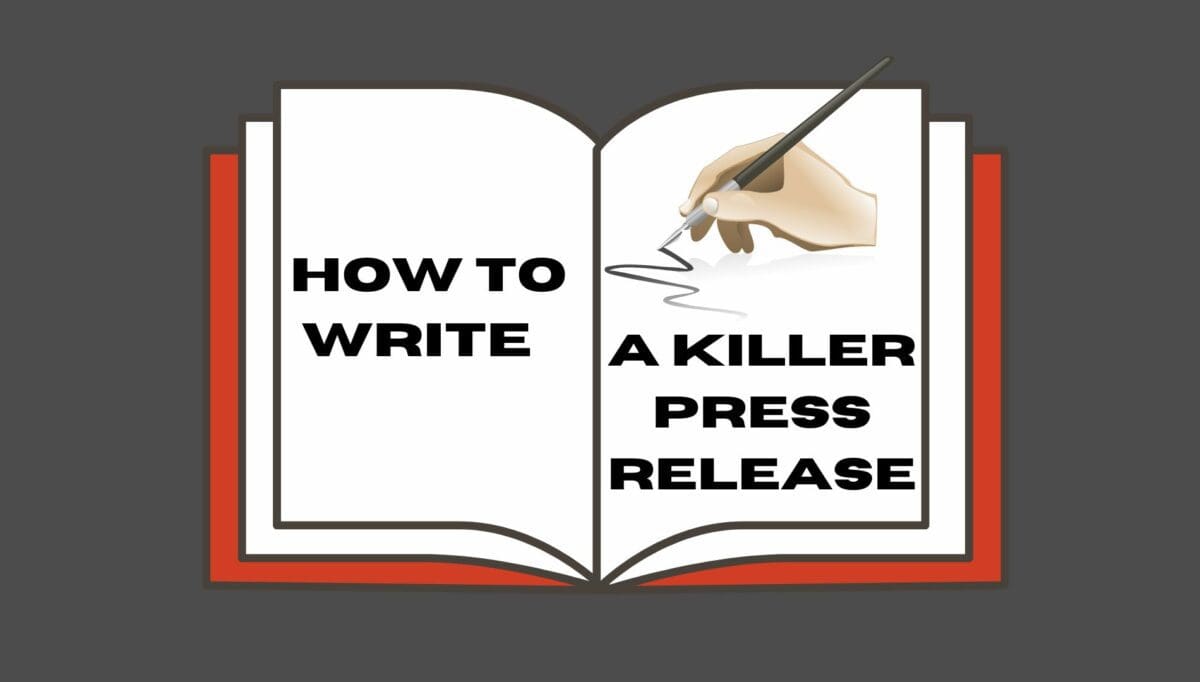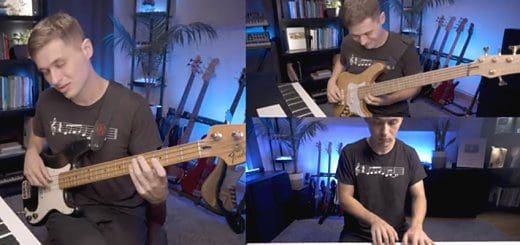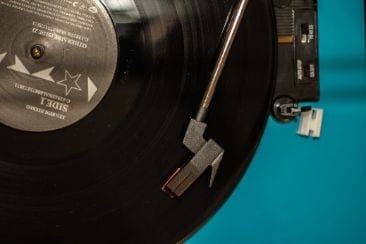Want to know how open mics work, what happens, what they are like, and what to expect on the night? Here’s all you need to know about performing at your first open mic nights.
Are you ready to get out there with your music? Get yourself started with an open mic! Having helped so many up-and-coming musicians develop as artists, here are Open Mic UK’s hints and tips for how open mic nights work, and how they can work for you.

For music artists starting out, open mics are a great platform for gaining experience. You’ll receive immediate feedback from a live audience, get to network with other musicians and break into the local music scene.
Open Mics are the perfect place to showcase fresh new talent and, hopefully, make a little money along the way. Read the following for everything you need to know to rock your local open mic.
What are open mics like and how do they work?
An open mic night is a live show organised weekly, monthly, or occasionally, mostly during off-nights, in places like a pub, bar or café to encourage new talents. The brilliant part about these events is that anyone can simply go along, sign up, and perform either covers or their own original songs.
It doesn’t matter whether you’re a singer, songwriter, musician or rapper, everybody gets the chance to perform in front of a live audience. Open mics are not just fun and easy to sign up for, but they’re the best outlets for emerging artists to get that all-important experience of performing in front of an audience.
What happens at an open mic night?
These nights are usually hosted by a local singer, composer or sound engineer, who introduces each performer before they take their turns.
Open mics are generally an opportunity to ‘turn up and play your music’ type of night, however, every venue has different rules. While some run on a first-come, first-served line-up where you can simply show up and ask the host where to sign up, others may ask that you submit your name prior to the event.
Can you perform cover songs at open mic nights?
In general, you’re allowed to perform covers as well as original music on the night. Most open mics are open to all genres of music, but some nights cater for a specific genre, so it’s a good idea to check first to find out whether it’s pop, rock, blues, jazz, metal, classical, funk, acoustic or anything else.
Most open mic events are aimed at solo singer-songwriters. While some allow you to turn up with your own equipment, others have backup instrumentalists or a full house band to accompany performers.
If it’s not clear online, you can always contact the venue or host in advance and find out about the set-up the venue has. It helps to go be well-prepared and have a good outline of the evening beforehand.
Remember, most places have a time or song limit for each performer. So, it’s best to plan your performance before you arrive.
When do you know if you’re ready for an open Mic?
If you’ve been working tirelessly on perfecting your vocal techniques, stage performance and new compositions, and feel you’re finally ready to showcase those skills in front of a live audience, then you should take the plunge into the open mic scene.
If you’re uncertain, it’s always a good idea to head down to an open mic night to watch other performers and get a feel for what the evening is like.
Bring your friends and family to encourage you.
Remember that most people at open mics are also working on developing their own performance, so ask for constructive feedback from some of the other music artists or the from host.
| “A huge part of everything we do is being able to go with the opportunities presented to us, no matter how big or small. I think back to all of the open mic night that I carted myself to around Bristol and the shows I would agree to play knowing full well that nobody would be there. Those memories are some of my happiest”. |  |
— George Ezra
How should you prepare for an open mic night?
Always practice before you attend an open mic night. Practice until you feel you know your songs inside out, memorise the lyrics and work on your songs until they are smooth and polished. Do a full rehearsal prior to the event to make sure you’ve got everything right.
Remember that one of the biggest causes of performance anxiety is not practising enough. Practice, practice, practice until you’re confident with your performance, and imagine feeling just as comfortable in front of an audience. Take that feeling and confidence to the open mic with you!
Make contact with the person who is running the event and find out where and how to sign up in advance.
Ask the host what the rules of the night are when you are signing up. Find out what time the show starts and when it ends so you can share the information with your friends. Some venues have a small cover charge for the audience, but most don’t. Enquire about all the details so you know what to tell your friends when you invite them along.
 | “I spent two years playing open mic nights in Brighton. The greatest thing I learned on all those open mics was how to shut up a drunk pub.” |
— James Bay
How to structure an open mic set?
You can expect to perform between two and five songs at an open mic night, so prepare the maximum amount for your set.
If it’s your first time performing at an open mic, you can ask the host if you can just do just one or two songs until you build enough confidence to perform more.
Sometimes venue hosts will encourage you to perform longer if the night is quiet so it’s a good idea to come prepared with a few extra songs if you can.
What should I play/sing?
It’s important to choose a material that helps you connect with your audience. Playing a folk song in a loud bar or death metal in a lazy coffeehouse might not go down so well, so it best to work out which open mic nights suit your music first and then be prepared to adapt your set on the night if it needs tweaking.
Think about performing some of your best original songs, as open mics are a fantastic place to try our new material.
How long are open mic sets?
Most open mic nights are generally between three hours to five hours long. The length of each performer’s set is often dependent on the skill and how many people want to perform that night.
Be prepared for when they offer you longer sets and think about how to best use the time you are given.
How many songs do I get to play/sing?
While formats can vary from venue to venue, usually you should expect to perform two to three songs or have a 10-15-minute time slot. Again, to know the exact details, check with the venue or host before arriving.
How do I overcome stage fright?
If you get nervous, looking at a friendly face can help sometimes, so it’s a good idea to invite your friends and family to the event and ask them to cheer you on (Sensibly, of course).
If you’re performing for the first time, show up a bit early so you have time to settle in and relax before going up to perform. Rehearse your piece in your head, if that’s helpful, but stay calm and treat any nerves as excitement.
Try using visualisation. Often just imagining yourself having a great performance can give you a confidence boost. See if that works for you. Remember that there will be other people in attendance who may be just as nervous as you are.
How do I look for open mic nights near my location?
The easy answer is to search on the internet. Search for open mic nights near me and find places that organise regular events in and around your location. Call them in advance to make sure the details shared online are up to date.
Local entertainment magazines, online open mic directories or listings, classified sites and Facebook groups are all great options to find out about upcoming open mic nights.
Check the Open Mic UK website for our regional top 10 Open Mic Nights.
Once you find a couple of promising options, simply call the venue on the day (or a few days before) to confirm that the event is still happening.
Making new friends at open mic nights is also a reliable way to find out about new performance opportunities. Most people who play at open mic nights go to various locations, so once you start meeting new people, ask them where the local hot spots are and add these venues to your database.
Below James Bay discusses his start playing open mic nights in London and Brighton:
What makes open mic nights so awesome?
- First, everyone is welcome to perform.
- You don’t need to book in advance, just sign up when you get there.
- It’s a fantastic way to gain experience and hone your performance skills.
- You can play contrasting songs, as there’s generally no specific format.
- The audience, mostly performers themselves, is usually kind and encouraging.
- It’s a wonderful environment for getting your music heard, building your stage presence in front of a crowd and getting useful feedback.
- It’s one of the best networking opportunities for musicians.
Are you prepared for an open mic night?
Here is everything you should know before you sign up for your open mic:
1. Do your homework
Make a list of the songs you’ve chosen to play and practice them well before you hit the stage. Introduce your song if it’s an original but keep it short.
While performing, remember to make frequent eye contact with your audience. It always helps to build a connection.
2. Be ready with spare songs
Ideally, you don’t want to repeat a song that someone else has already played. Always have a spare song or two at the ready, just in case you need to make last-minute changes due to another performer’s choice of material.
Carry the gear you need
While you should carry your own equipment, don’t make the mistake of going up on stage with instruments that take ages to set up. Keep it simple. It’s always better to find out from the host if there’s house equipment available at the venue. If yes, why bother carrying unnecessary gear?
3. Make sure everything’s working
To belt out your best, warm up your vocal cords before you start. Check that your strings are in tune, batteries fresh and cables working. If something goes wrong at the last minute and you fail to set it up, have a backup in mind and opt for an unplugged performance rather than leaving the stage. The audience will appreciate your ‘can-do’ attitude.
4. Stick to your slot
Know the house rules well. While it’s customary to get three songs or fifteen minutes, sometimes this can get cut down if too many people sign up for a night. Be respectful of your fellow musicians and don’t go over your allotted time.
5. Relax!
Being comfortable on stage can charm the audience before you even perform, so calm yourself before you go up. Close your eyes, take some deep breaths and unwind. Remember to drink responsibly if your name is on the list. We’d advise you to never perform after drinking alcohol for a number of reasons.
6. Learn from mistakes
Even if you mess up, keep going. Everyone knows that open mic nights are for all levels including newcomers. Some occasional mistakes are not a problem and if you just keep going the audience most likely won’t even notice anyway.
7. Cheer for your peers
Stay back after you finish and enjoy the other performances. Even if you don’t like an act, be gracious and show encouragement for the other acts.
8. Get to know the host
Open mic hosts are most influential people, especially on the local music scene. Build a good rapport with them if you want to know about potential bookings. But don’t pester them for a gig immediately. If you’re good, they might recommend you for paid shows and/or to musicians scouting for new talent.
Promotion at an open mic night
Open mics are a great place to promote what you’re doing with your music. If you have a CD or leaflets, you can politely ask the host beforehand if it’s alright to put copies out for people.
Try not to disturb the other performers when you are speaking with the host. Get there early so as not to detract attention from the other performers, and if you’re going to be late let them know beforehand.
9. Have a good time
An open mic night is about gaining experience, networking with other musicians, having fun and, most importantly, enjoying the music. So have fun and play your part!
How do I know if I nailed it?
Ask yourself these questions after every show:
- Where did I perform?
- What song(s) did I play/sing?
- How do I feel about my performance?
- How was the crowd’s response?
- Did people come up to me after the show?
- What did they say?
- Have I made any new connections?
- How many people did I add to my mailing list?
- Has this event increased the traffic to my website?
Consider keeping a journal of your answers.
Musicians who started out at open mic nights
If you’re still wondering whether performing at open mic nights really works, former open mic performers who’ve become household names include Adele, George Ezra (who turned his open mic start into a residency at the Gallimaufry music venue in Bristol) and James Bay.
They started out in the music world by performing at open mic nights and have gone on to have hugely successful international careers, many artists have started out this way and now it could you? Go on, give it a go and make it big!
Have you played an open mic night before? What’s your advice for newer performers? Can you tell us what happens at open mic nights near you? What are open mic nights like in your area? Let us know in the comments below!










